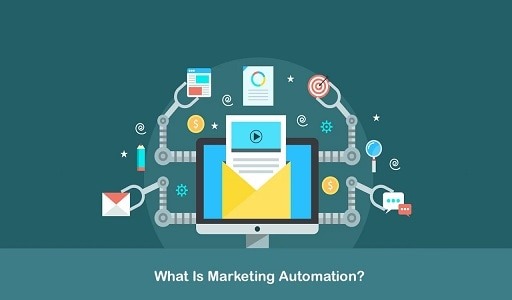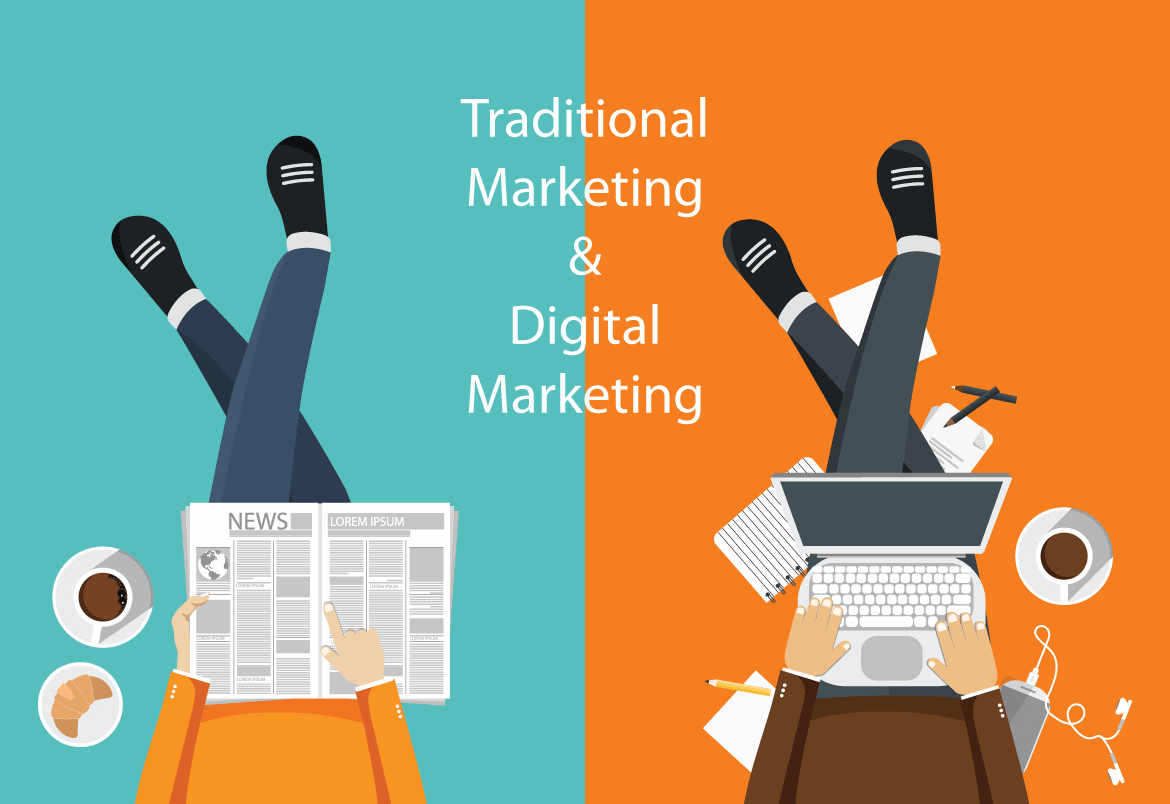Want to scale your marketing activities, smooth out the processes in a team, and enhance customer experiences? Marketing automation has plenty of reasons to extend its growth over the last decade.
Since marketers are facing an increasingly broad range of channels and platforms where they can interact with their customers, marketing automation is a godsend to help them save time by automating activities that were manual. This frees them up to work on key projects.
This article will dive deep into the very concept and mechanism of marketing automation, show a few popular marketing automation tools, and provide real-world examples to show it in action.

What is Marketing Automation?
Marketing automation encompasses a long list of various software and tools used to manage marketing activity, processes, and flows directly, without human intervention.
In the midst of their busy schedule, a marketer has to carry out numerous tasks every day. Using marketing automation software, one can focus on higher and time-consuming activities by automating routine tasks and mundane ones.
These benefits accrue not just to the individual marketer or marketing team but right through an organization, culminating in heightened efficiency and contributing to an enhanced financial performance of your business.
Marketing automation offers several advantages to a business, such as:
- Speed up workflow for marketing teams, hence saving them time.
- Increasing productivity at team and individual levels.
- Establish and nurture relationships with potential leads.
- Customer experience will be enhanced, and customer retention efforts will be improved.
- Operational costs will be minimized.
Marketing automation simplifies business operations and hence ensures a superior customer experience since everything is automated, from an email marketing campaign to categorization of prospect workflows.
You can also read: 7 CRM Strategies That Can Benefit Small Business in 2024
Is Marketing Automation the Same as a CRM?
While marketing automation and customer relationship management, or CRM, software are closely related, they absolutely are not the same thing.
Each of them serves a different purpose, but when combined, they can be an incredibly powerful combination that enhances your customer journey.
So, what is the real difference between marketing automation and CRM?
Automation of marketing focuses on the automation and optimization of tasks oriented towards marketing, while CRM software mainly optimizes the efforts of your sales and customer service teams.
Your CRM is where data about customers and prospects resides-including information pertaining to their profiles, purchase history, and interaction or sales call notes. It provides a unified source of reference whereby your sales, service, and marketing organizations can centralize activities related to customer relationships at every stage of the sales cycle.
That is different from the workflows of marketing automation, but it is absolutely possible to integrate the two in order to derive maximum efficiency in marketing strategies based on customer data.
Not seldom, it is the CRM providers who also provide marketing automation tools, since they are designed to interact in a synergistic relationship.
What Does Marketing Automation Do?
Marketing automation helps the enterprise elevate its marketing strategies and activities in a way that will help in better lead generation and nurturing by automating the marketing activities.
You can create a more personalized customer experience with the help of a marketing automation platform without much manual intervention.
You can configure the software to capture data about each lead or prospect and then use the data to display the appropriate material to each person at precisely the right time. All you have to do is tell your marketing automation tool what information to capture and how best to use that information for maximum effect.
Here are some of the most common usages of marketing automation:
Take your email marketing to the next level through the automation of your email campaigns. It is possible to create workflows that can send timely, personalized emails automatically to either customers or prospects, depending on an action that they may perform. A very good instance here would be that when you visit a website, put something in your cart, and then leave, businesses may use marketing automation workflows to send an email to customers reminding them about the item that was left in their cart.
You can also read: How to Choose the Right CRM for Your Business
Build more powerful marketing campaigns with workflows that automatically send perfectly targeted messages to leads at every step of their interaction with your brand, on whichever platform-whether social, email, in-app, or anything else-makes the most sense to them.
Gather enlightening analytics around the efficiency of your marketing campaigns and prowess at lead generation and conversion. Automation of marketing may provide detailed insights into one’s effectiveness at customer engagement and point out areas for improvement.
How Does Marketing Automation Work?
But how does this work out in practical reality? Marketing automation is a somewhat abstract concept. Any interaction you have with customers or prospects-every email you send them or get back, every time they come to your website, every social media interaction-leaves behind little pieces of information about who that person is.
All this information is not only stored by marketing automation platforms but gets analyzed and be put to good use. With the help of marketing automation software, you will be able to divide or segment your leads depending on certain preset criteria related to their interests or behaviors.
From here, you could create campaigns whereby custom messages would be automatically relayed to leads through various events, actions, or stages in the customer journey. You can build workflows using pre-configured templates or construct those from scratch that will fit your needs.
Once you’ve established the workflows you need, you can let your marketing automation platform do much of the work. Indeed, much of your work will simply involve regular checks with analytics and reports, just to make sure you’re getting the most from your workflows.
Marketing Automation Platforms
There are a multitude of different marketing automation platforms, each offering a lot of different functions and tools. For this post, we’ll highlight just a few:
You can also read: A Guide to CRM Retargeting with Google Analytics (CRM Software)
Mailchimp
More famous for its email marketing features, Mailchimp also has a set of different marketing automation tools, which include:
- Retargeting Ads: to restore the interest of people who have visited your website and make them come back.
- Customer Journey Builder: create automation workflows based on both customers’ preferences and your goals.
- Transactional Emails: send messages to customers at certain actions.
ActiveCampaign
ActiveCampaign is one of the most popular marketing automation services and includes features for data collection from social media, live chat, landing pages, SMS, and much more.
Leveraged features include:
- Advanced reporting: quickly identify your best marketing campaign automation.
- Customizable sign-up forms and landing pages: build beautiful pages in minutes, collect emails, segment your audience, and trigger automation.
- Notification emails that remind you to speak to leads at just the right time.
Customer.io
Customer.io scales your messaging processes by automating them across email, push, SMS, and beyond. Key capabilities include:
- In-app message automation is deeply integrated and in harmony with email, push notifications, and text messages.
- Visual workflow builder intuitively guides you through building a better customer journey.
- Ad Audience Synchronization intelligently tracks your ad audiences cross-platform and seamlessly syncs them with your segments without ever requiring a CSV file.
You can also read: Does Future-Proofing CRM Solutions for Digital Business!
Klaviyo
By leveraging Klaviyo’s marketing automation capabilities, you are able to deliver personalized messages to your customers exactly when they mean the most.
Some key features include:
- Behavioral automation: Because the messages are triggered by behavior, and anchored in real data and events.
- Advanced segmentation: You will be able to precision target based on a set of demographic attributes.
- AI-driven optimization: Through data predictions, to proactively engage customers.
Examples Of Marketing Automation
Having gained a better understanding of what marketing automation is and how it works, let’s move on quickly to a few different examples of various marketing automation workflows.
Reminder and Re-Engagement Emails
Imagine you purchase a skincare product from a brand. Using customer data, the company understands that a typical product cycle lasts about three months.
Hence, they use marketing automation to automatically dispatch an email to you approximately three months following your purchase. This email serves to motivate you to consider purchasing a new product to replenish your supply.
Feedback Surveys
After participating in a webinar hosted by a technology brand, the session concludes.
Following the conclusion of the webinar, you promptly receive an automated email containing a survey. This survey seeks your evaluation of the experience and invites you to share any feedback you might have. Subsequently, the gathered data is transmitted to the company for their analysis.
Guidance for Getting Started
Upon registering for a new service, you’re promptly sent an email within a few days, providing insights and recommendations on how to optimize your usage of the service as a newcomer.
Promotions and Bargains
Upon enrolling in a brand’s loyalty program, you swiftly receive an SMS containing a new customer offer: a 15% discount.
You can also read: 8 Companies that Rule the World of Automation
Elevate Your Marketing Approach with the Help of Automation Solutions
The need for more hours in a day feeling shared by many, and marketers are no exception to that. Since most of their tasks could barely leave one breathing space, anything to assist them in smoothing out their daily task is extremely welcome. Hence, it was not unexpected that marketing automation should become an influential and advantageous asset for businesses across different industries.
Automation in marketing lets you perfect your marketing effort while returning some very valuable hours back to your team at the same time. However, its greatest power is providing you with the opportunity to create a smooth and pleasant customer journey. In return, this will foster the transformation of prospects into leads and those leads into loyal customers.
![]()











